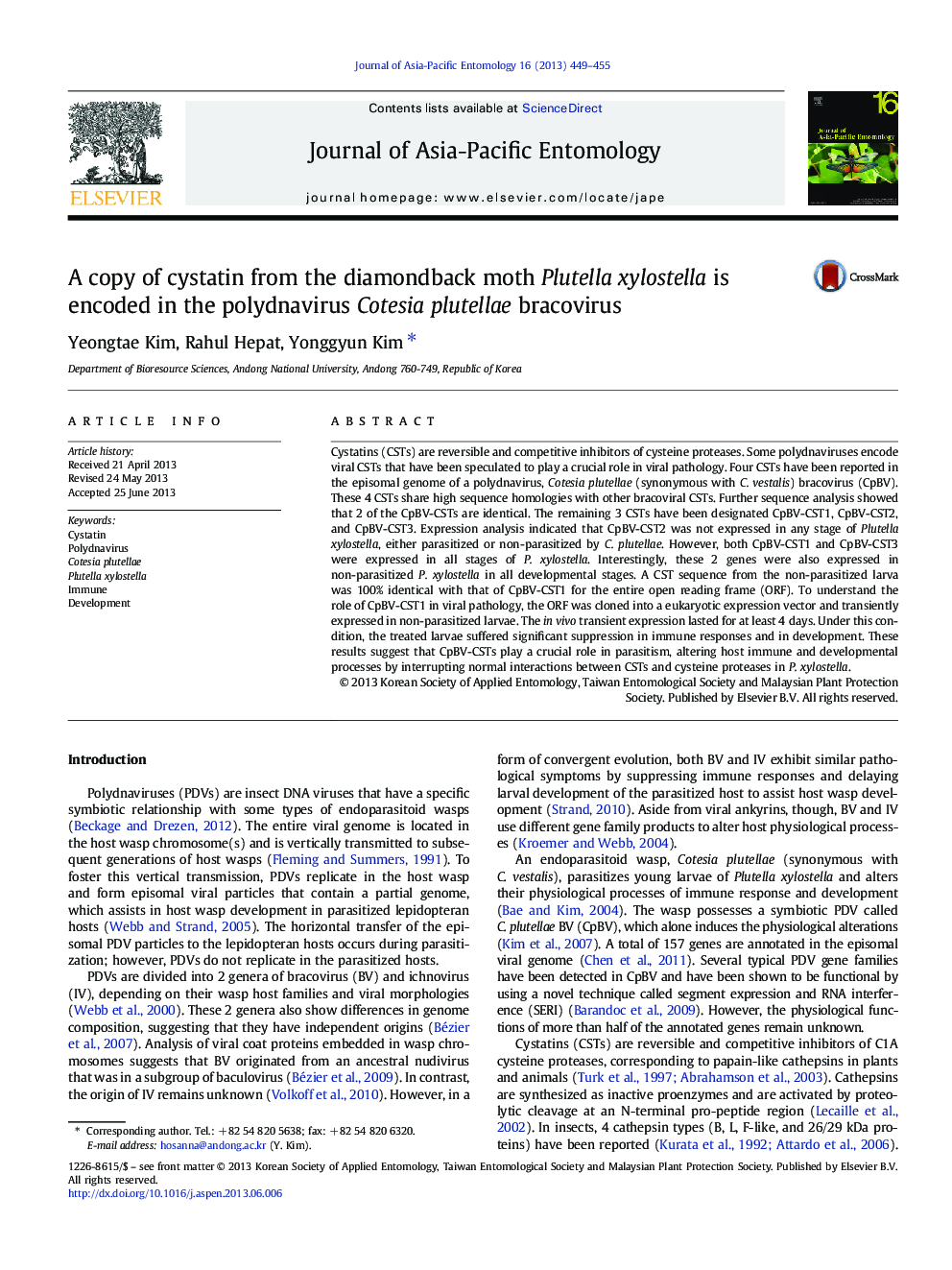| کد مقاله | کد نشریه | سال انتشار | مقاله انگلیسی | نسخه تمام متن |
|---|---|---|---|---|
| 4524497 | 1323580 | 2013 | 7 صفحه PDF | دانلود رایگان |

• Three viral cystatins (CSTs) are encoded in Cotesia plutellae bracovirus (CpBV).
• A CST sequence of the nonparasitized larvae was 100% identical with that of CpBV-CST1.
• An in vivo transient expression of CpBV-CST1 induced an immunosuppression and developmental alteration.
Cystatins (CSTs) are reversible and competitive inhibitors of cysteine proteases. Some polydnaviruses encode viral CSTs that have been speculated to play a crucial role in viral pathology. Four CSTs have been reported in the episomal genome of a polydnavirus, Cotesia plutellae (synonymous with C. vestalis) bracovirus (CpBV). These 4 CSTs share high sequence homologies with other bracoviral CSTs. Further sequence analysis showed that 2 of the CpBV-CSTs are identical. The remaining 3 CSTs have been designated CpBV-CST1, CpBV-CST2, and CpBV-CST3. Expression analysis indicated that CpBV-CST2 was not expressed in any stage of Plutella xylostella, either parasitized or non-parasitized by C. plutellae. However, both CpBV-CST1 and CpBV-CST3 were expressed in all stages of P. xylostella. Interestingly, these 2 genes were also expressed in non-parasitized P. xylostella in all developmental stages. A CST sequence from the non-parasitized larva was 100% identical with that of CpBV-CST1 for the entire open reading frame (ORF). To understand the role of CpBV-CST1 in viral pathology, the ORF was cloned into a eukaryotic expression vector and transiently expressed in non-parasitized larvae. The in vivo transient expression lasted for at least 4 days. Under this condition, the treated larvae suffered significant suppression in immune responses and in development. These results suggest that CpBV-CSTs play a crucial role in parasitism, altering host immune and developmental processes by interrupting normal interactions between CSTs and cysteine proteases in P. xylostella.
Figure optionsDownload as PowerPoint slide
Journal: Journal of Asia-Pacific Entomology - Volume 16, Issue 4, December 2013, Pages 449–455